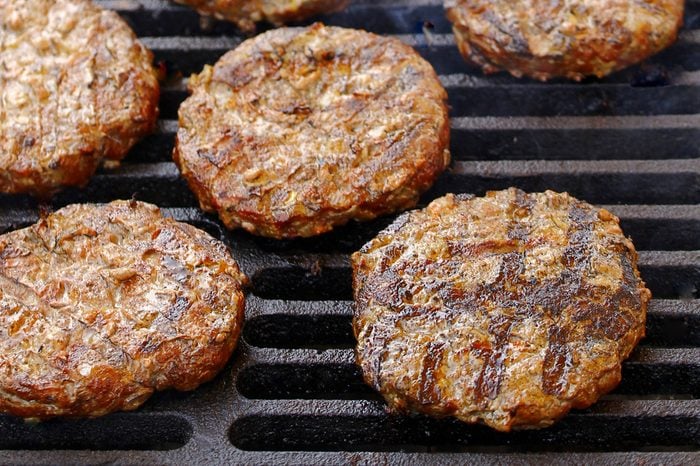
Only flip a burger once
“Put it on the grill and let it get slightly charred before attempting to turn it,” says celebrity chef Bobby Flay. “If a crust hasn’t formed and you try to flip the burger, it’s going to stick to the grill and fall apart. If you keep flipping it over and over, there is a good chance that it will fall apart.” And never press on a patty while it’s cooking—you risk losing delicious burger juices, causing flare-ups on the grill, and drying your burger out.
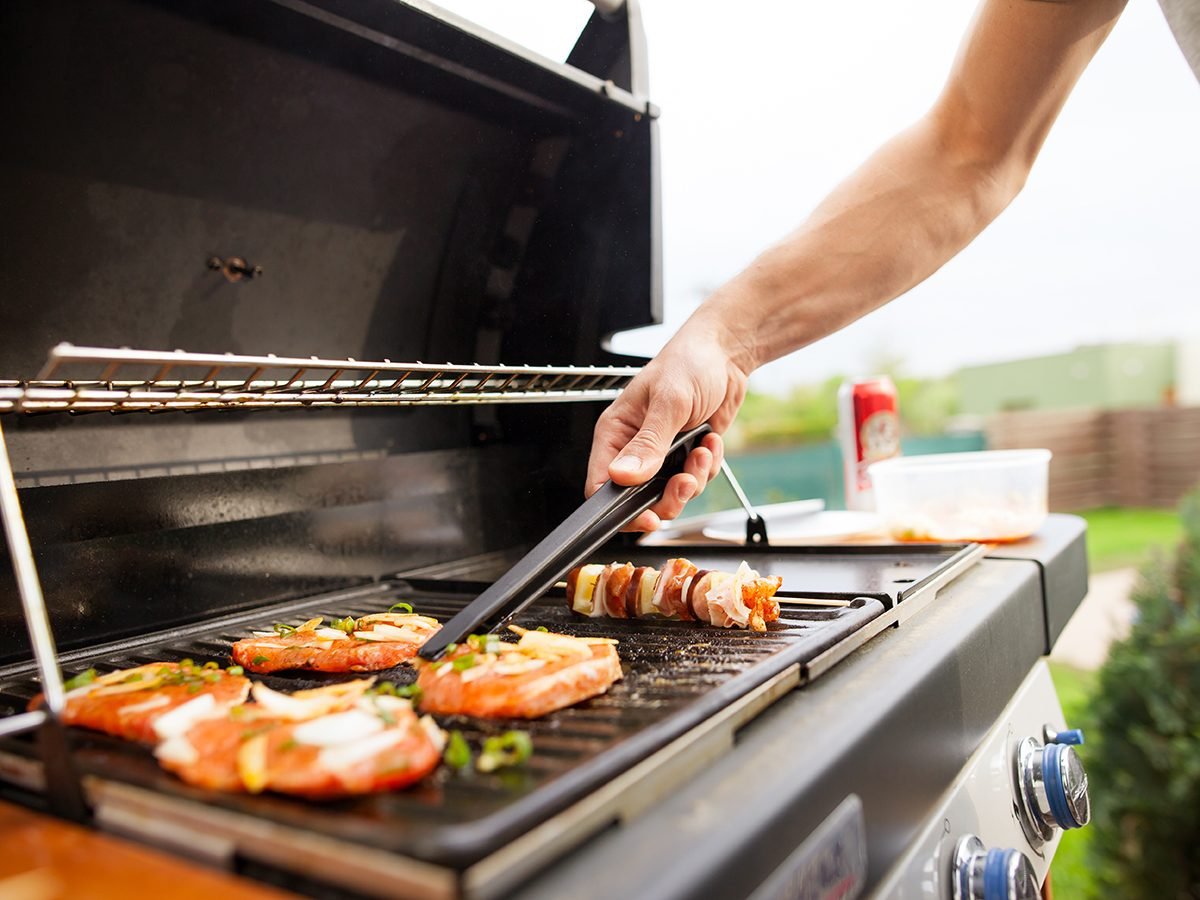
Always preheat the grill
Who better to ask for grilling tips than Kevin Kolman, head grill master for Weber Grills? According to Kolman, you should preheat your grill just as you would your oven. If you throw food on before it gets to the proper temperature, it will take longer to cook and your food will dry out, he says. Opening the grill lid frequently has a similar effect.
Round out your grilled main course with one of these easy summer dessert recipes.
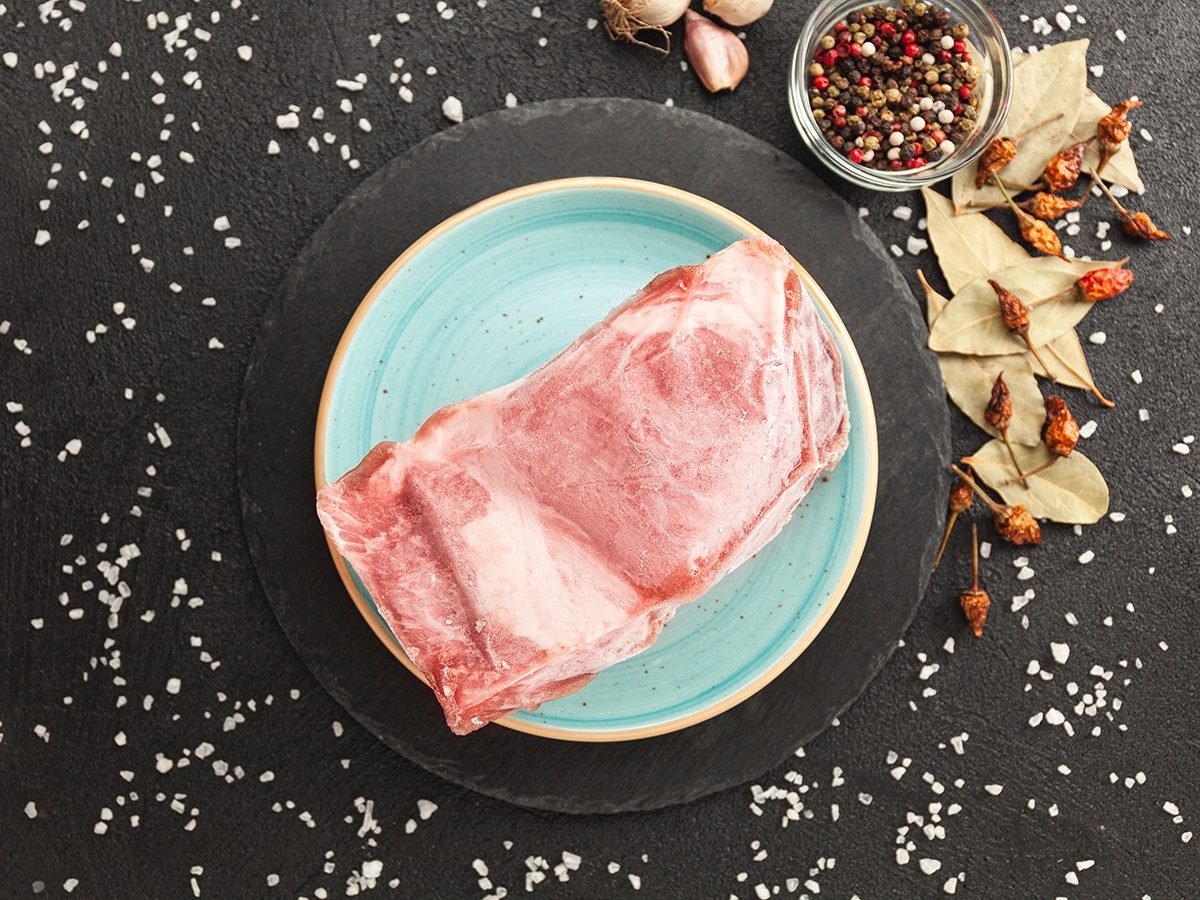
Let your meat come close to room temperature before grilling
You don’t want to leave meat unrefrigerated for too long because that could allow bacteria to grow and lead to food safety issues, but taking the chill off helps. “Ice-cold meat will cook less evenly,” says Richard Blais, chef, cookbook author, and frequent Top Chef contender.
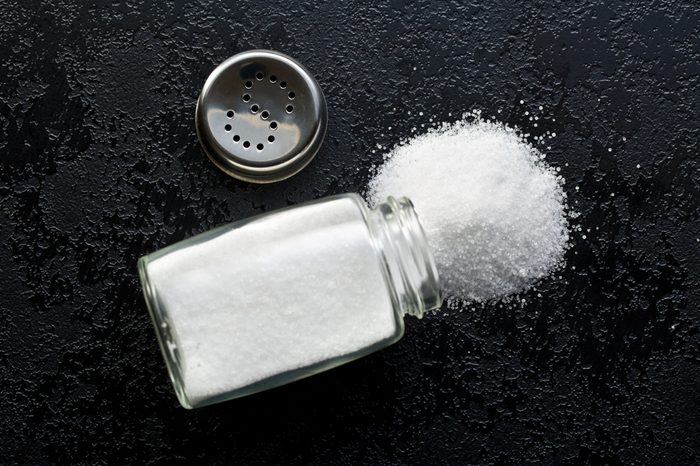
Salt twice
Salt is so important to grilling, you should do it twice: once before you cook and once after you’re done. Salting before cooking helps season the meat (and if you’re using a rub, it will help those flavours penetrate the protein to season it all the way through). Blais likes Coarse Kosher Salt because he says the shape of the flakes ensure they stick to ingredients.
Three-Michelin-starred chef Heston Blumenthal, owner of The Fat Duck in Berkshire, England, prefers fine salt for raw meat because it covers a larger surface area, and avoids black pepper, which he says burns during the cooking process. He likes sea salt for cooked meat because “the salt crystal releases more flavour when biting into them.”
Excited to put these grilling tips to the test? Check out these quick BBQ recipes that’ll be on the table in 30 minutes.
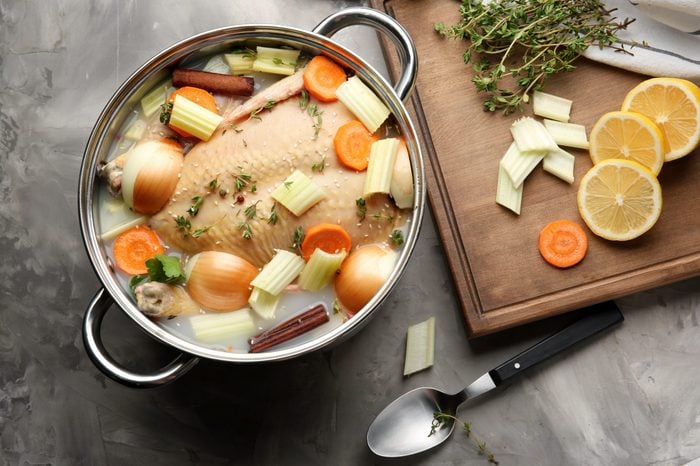
Brine lean meats
Brining is basically a salt water soak for proteins that helps meats retain their juiciness in the face of extreme temperatures. “I cannot speak enough about the importance of a brine,” says chef Isaac Toups, owner of Toups’ Meatery and author of Chasing the Gator—Isaac Toups & the New Cajun Cooking. “Pork chops, chicken, and lean cuts of beef need brining before hitting the grill because they lack the fattiness to withstand a long time on a hot surface without drying out.”
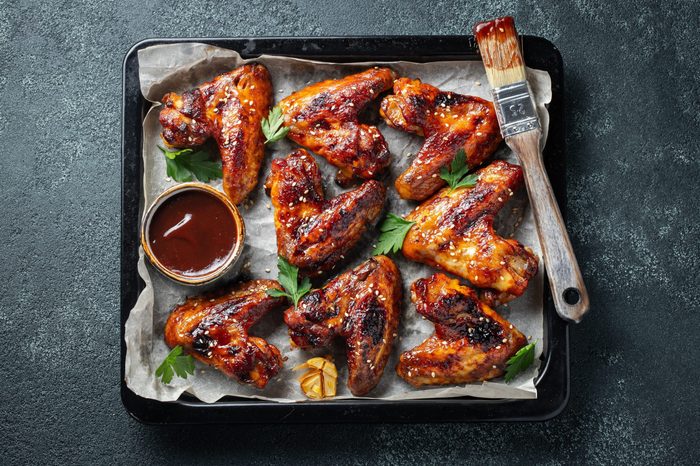
Let it marinate
Marinades can not only help tenderize tougher cuts of meat, but they can also make them healthier. “Marinating meat helps to reduce heterocyclic amines”— HCAs, the cancer-causing chemicals generated when food is cooked at high temperatures—says chef Joe Vigorito of L’Artusi. “Marinades, especially ones with herbs like rosemary, sage, and thyme, inhibit the formation of those carcinogens.”
Here’s more on the healing power of certain herbs and spices.
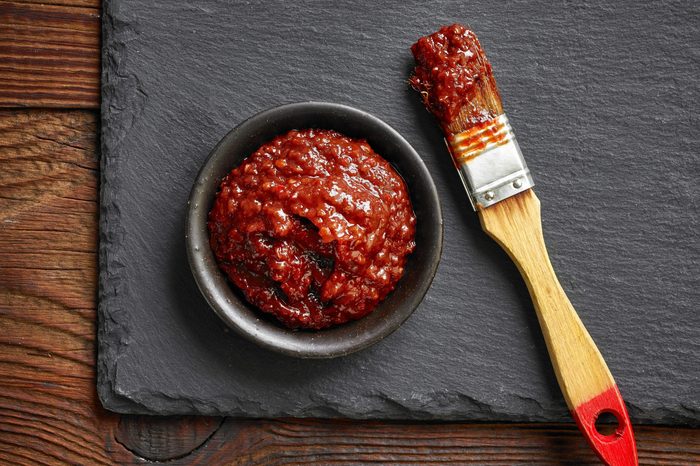
Cook first, sauce later
Sauces tend to have lots of sugar, which will caramelize or burn if you put them on too early. With that in mind, one of Blais’s top grilling tips is to wait until you’re just about ready to take your food off the grill, then finish with a little brush of sauce, butter, or vinaigrette.
Discover more cooking hacks you’ll wish you’d known sooner.
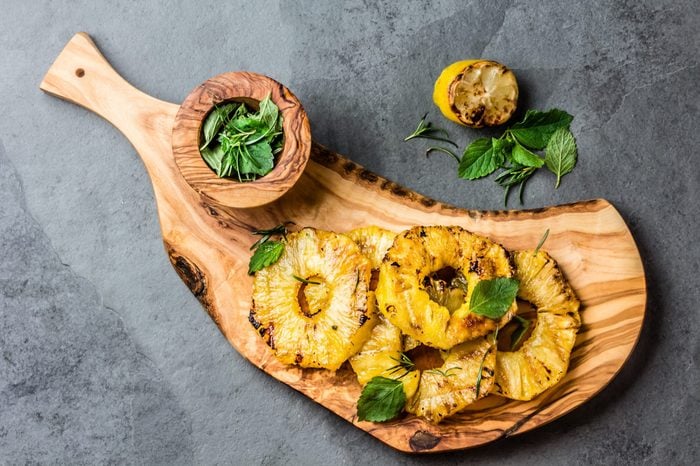
Don’t be afraid to experiment with fruits and veggies
“Fruits and vegetables will react beautifully to both marinades and grilling techniques,” says Laura Licona, executive chef at Fairway Market. She likes to halve peaches, rub them with oil and salt, and throw them on a smoking hot grill. She does the same with a head of butter lettuce for a grilled salad. “Mangoes, asparagus, plums, avocados—they all do interesting things when direct and indirect fire is applied,” she says. “Experiment!”
Here are 20 things you’re not grilling—but should be!
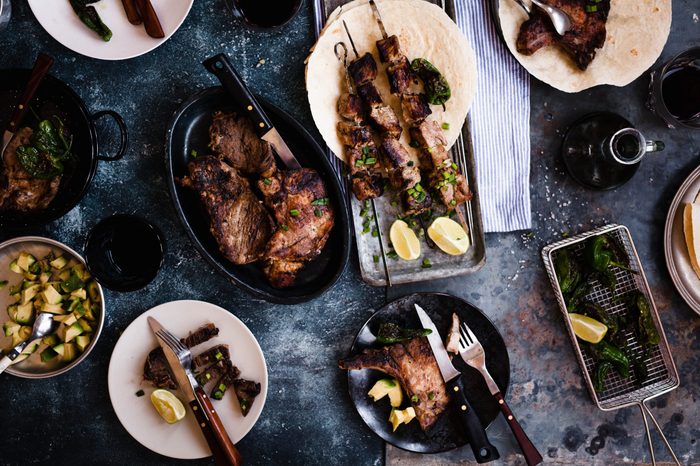
Don’t forget to rest
Your meat, that is. It continues to cook even after you take it off the grates, and letting it sit helps redistribute the juices internally. “The larger the piece of meat, the more it will cook during resting,” says Blumenthal. This means you should always remove meat from the grill slightly before it reaches the desired internal temperature, place it on a cooling rack over a tray, and allow it to rest for approximately three to four minutes before slicing and serving. (Boneless poultry and fish are exceptions and don’t need to rest.)
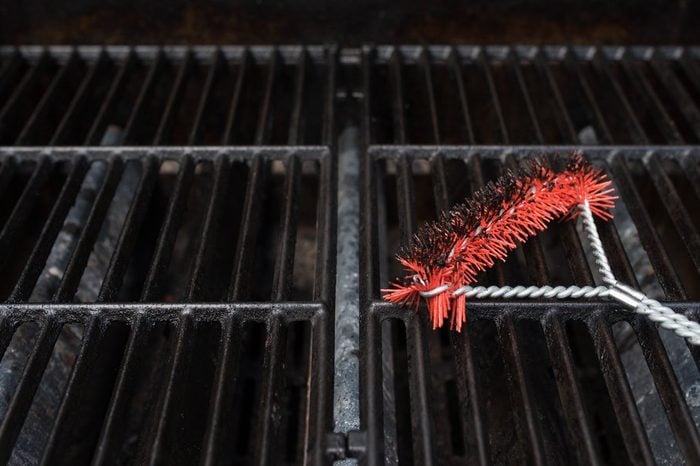
Clean your grill every time you use it
“A clean grill ensures the steak won’t stick,” says chef Frank Proto, director of culinary operations for the Institute of Culinary Education. He uses a brush and an oiled paper towel, but chef Naomi Nachman, author of Perfect Flavors, suggests this shortcut: Leave the grill on for half an hour to an hour after you’ve taken all the food off, then brush off any residue. The high temps make for easier cleanup.
Discover more grilling tips for the best BBQ season ever.
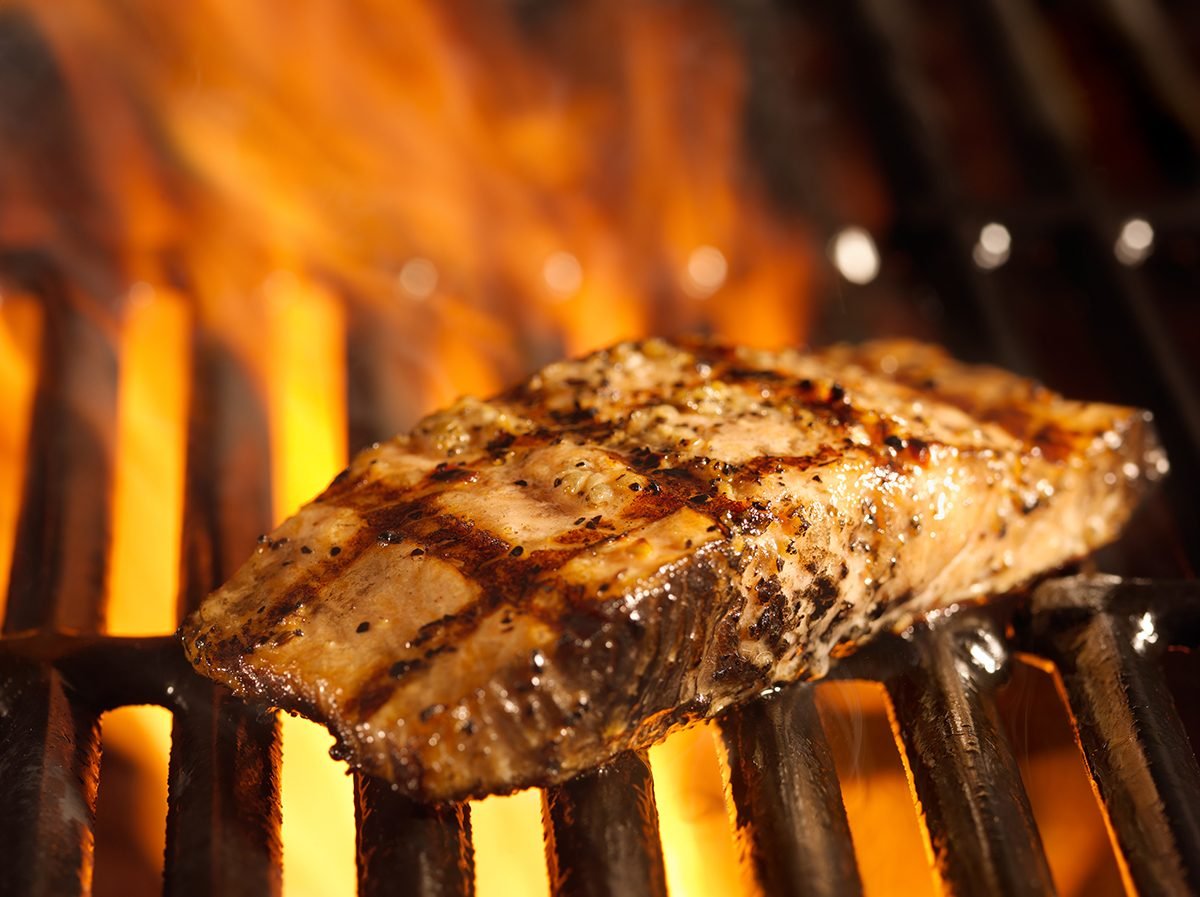
Don’t forget fish
“Grilling fish may seem intimidating, but it is actually quite easy to do,” says Brian Landry, chef/co-owner of Jack Rose in New Orleans and Marsh House in Nashville. His grilling tips for fish start with oiling the grates (use an oil-soaked paper towel and tongs) and the fish to help prevent sticking, and starting skin-side down. Use a spatula to flip (just once, like burgers).
If you’re still nervous, try it in foil or on a plank, which adds flavour to the fillet. Nachman likes to make foil packets of seafood with citrus, aromatics like garlic, onions, and fresh herbs and place them on the grill. “This cooking technique retains moisture and makes food succulent and beyond flavourful,” she says. “You can even try this with water and no oil for a fat-free steam.”
Find out the healthiest fish you can eat.
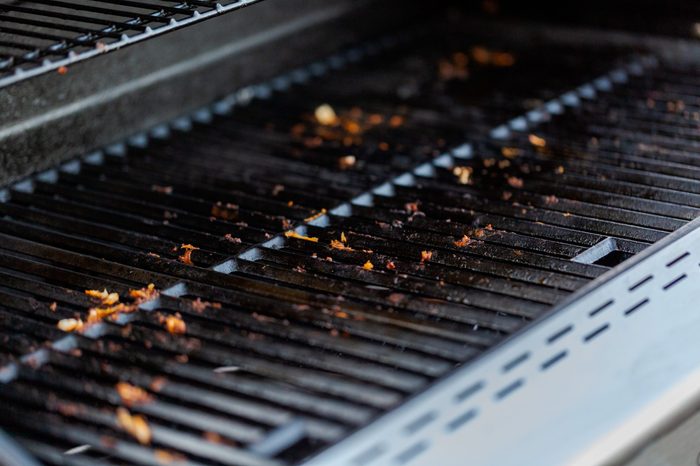
Level up
If your grill has a top grate and a lower one, move things around and play with indirect heat, says Nachman. “Leave meats and veggies on the top shelf, away from direct flame, with the lid closed for a more smokey flavour.” This technique takes longer, however, so make sure you adjust your cooking time appropriately. And remember, says Flay, “It’s always better to under cook than over cook—you can always put something that is undercooked back on the fire!”
Now that you’ve got these grilling tips under your belt, find out why you should never wrap leftovers in aluminum foil.